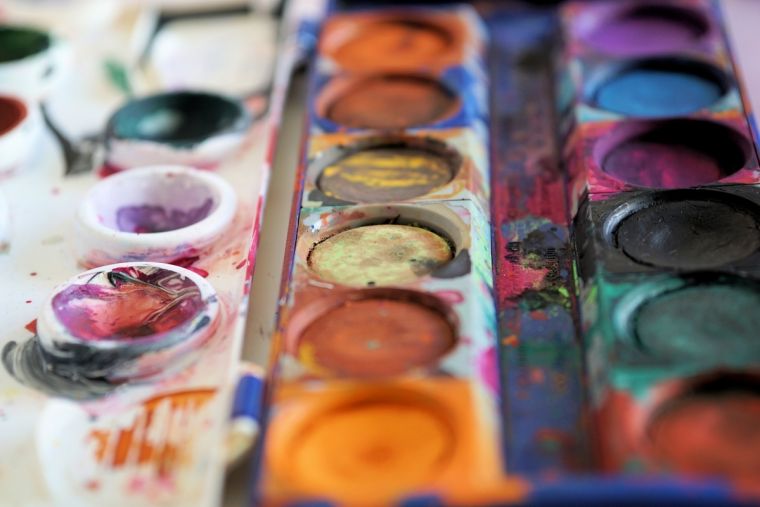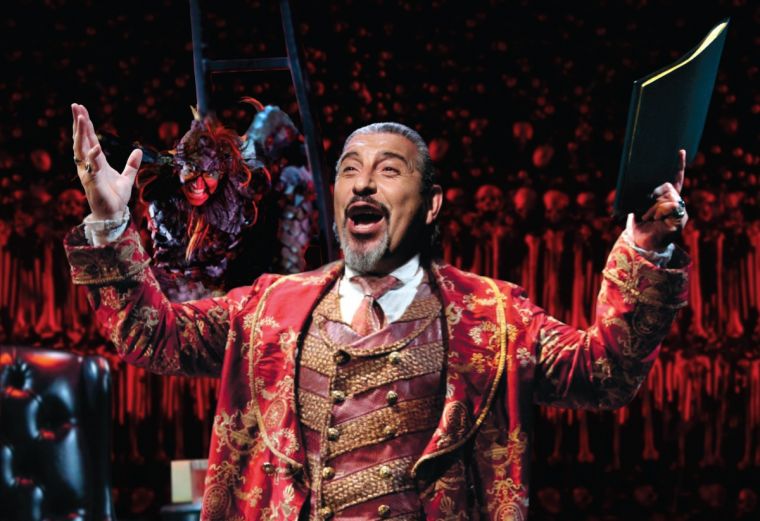Modern life is killing creativity – and the Church has to resist
Modern Brits are letting their creativity die, according to a recent study. We're more used to taking than making – and it's a crisis that's infecting the Church as well.
Most Brits (63 per cent) are neglecting their creative talents, and one in five adults over 30 have abandoned their artistic interests, according to a study by BIC®, published last week.

The cause of decline? Many (85 per cent) pointed to constant internet connectivity, with an abundance of devices and the prevalence of social media making it far easier to plug in or switch on than it is to pick up a pen and paper.
The busyness of modern life was also a factor (26 per cent) alongside 'family commitments' (20 per cent). But over a third had abandoned creative talents such as musical instruments, writing or drama because they just 'weren't good at it any more'.
Consumerism now comes easier than creativity – but the same is true in the Church, and it's a serious problem.
In my University years, I led a society that was all about encouraging Christians to use their creative gifts. You could gather hundreds for a society that united around evangelism, but could you gather even half as many who wanted to use their creativity to worship God?
Sadly, not quite. My experience tells me that many Christians have significant creative talents, but a minority of them would see investing in them as a major priority. Others might not have an obvious creative streak, but quite possibly that's because no one ever encouraged them to try to find it.
Of course, the Church might elevate a few 'creators' – those in the worship band for example – but the average Sunday sees the rest of the congregation relegated to the role of Christian consumer. How did we get here?
The advances of modern technology have served humanity in a myriad ways. They've dramatically expanded our horizons – but also narrowed them by often rendering us as passive receivers, not active creators. The internet offers a sea of compelling content to enjoy, but all that entertainment can inhibit our capacity to imagine and make.
Our connectivity can also engender constant comparison. Some might be inspired by social media to make and share their own innovations, but others might be so intimidated by the talent they see online that they neglect to create. They fear doing it badly, so don't do it at all.
Fear of 'bad art' isn't wrong, especially in the Christian world, where it's fair to say not all artistic efforts (certain 'faith-basedmovies' spring to mind) have been stellar. However, any artist knows that their industry will include flaws and miss-fires, but they press on, it's how they get to the gold. So why is Christian artistry important?
A neglect of artistry in the Church would have shocked the authors of Scripture, whose own work often constituted deeply artistic storytelling. And creativity drips off the very first pages of the Bible – in Genesis we meet the God who creates, bringing light from darkness, order from chaos and a universe where there wasn't one before.
Much has been made of God's making humankind 'in his own image' (Genesis 1:27) but that notion, whatever else it means, must surely include the image of the God who – up to that point – has done nothing but create.
And humanity has often followed that image – consider the immense creativity needed to take us from a race that hadn't learned to fish to one that now largely rules the skies and seas with our towering technological innovations. God invited humanity to take the garden and build a city – and that means creating and cultivating.
It's ironic that 'arts' subjects are now so often maligned as largely useless pursuits. Modern education tends to favour hard sciences and fields like mathematics and economics for their apparent bankability. But without artistry, we would have so little that we enjoy.

If a song ever made you cry, if a joke ever made you laugh, if a movie ever moved you or words ever made you wonder at the world – then you know the value of art. No one wants a world without these things, but are we that interested in keeping them around?
Writers like CS Lewis have shown how artistry can be a form of apologetics or evangelism. In The Chronicles of Narnia Lewis invited his audience to imagine a magical, enchanted world – and then wonder if his Good v Evil 'fairy-tale' might actually be a true story about reality.
We can forget that creativity is not only a gift to others but a gift to ourselves. It doesn't have to be useful or successful to have value. The mere process of writing a song, drawing a picture or telling a story can be a form of therapy. Just like our physical body, our imaginations need exercise so that we stay healthy.
In contrast, we often think just consuming entertainment will give us 'rest' – but its passivity can just make us unhappy.
The Christian can say why: creating feels right because it fulfils the 'image' in which we were made. Only taking and never making does the exact opposite.
Some will inevitably relegate artistry to the sidelines if they think they must choose between that and 'preaching the gospel'. But they aren't mutually exclusive. I think of three people I've met in the past year: the pastor writing songs as an outlet for praise and pain as he battles with cancer, the Christian director using secular theatre as a way of engaging a modern conversation about God, or the comedian who uses stand-up as an alternative evangelism. They're reshaping the world around them and telling a story with it.
Creativity offers people an profound, essential way of connecting with God, each other and themselves. The Church should cherish it, and – before everyone forgets – show the rest of the world what a gift it can be.
You can follow @JosephHartropp on Twitter











